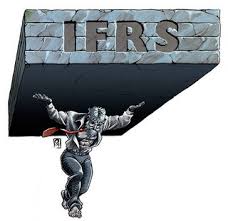Holding the office of Company Director brings with it many duties and responsibilities.  These duties and responsibilities are often overlooked. However, in the words of Warren Buffett “it’s only when the tide goes out that you discover who’s been swimming naked” and we are now seeing a significant increase in queries and questions in this area.
These duties and responsibilities are often overlooked. However, in the words of Warren Buffett “it’s only when the tide goes out that you discover who’s been swimming naked” and we are now seeing a significant increase in queries and questions in this area.
Directors are agents of the Company and are in a fiduciary position. The Companies Acts sets out duties and responsibilities to ensure that the Directors act correctly. At the heart of all the duties and responsibilities Directors must act in the best interests of the company at all times.
The Duties
Some common law duties of Directors include:-
- Not abuse their powers
- Cannot create self profit and advantage
- Due care, skill and diligence that would be reasonably expected for someone in their position
- Liable for negligent behaviour
- Delegation of their duties permissible but not responsibility
The Companies Acts sets out the statutory duties of Directors including:-
- Duty to maintain proper books of account
- Duty to prepare annual accounts
- Duty to maintain the Statutory Register
- Duty to file forms at the CRO
- Duty to hold meetings
Problematic Transactions
The Companies Acts sets out provisions regarding transactions with Directors. The main provisions for Directors to be aware of are:-
- Sec 31 CA, 1990 – Loans to Directors & Connected Persons
- 10% of Relevant Assets or Group Exemption
- Sec 29 CA, 1990 – Substantial Property Transactions
- Acquisition or Sale of Non-cash assets to Directors or Connected Persons
- Sec 60 CA, 1963 – Financial Assistance in connection with the Purchase of Own Shares
- The purchase or sale of companies
The Penalties
If any Director is in breach of Company Law, they may be prosecuted by the Courts. The penalties can include fines and or imprisonment. The most common penalties for Directors are Restriction and Disqualification.
most common penalties for Directors are Restriction and Disqualification.
Directors of insolvent companies may face restriction proceedings if the liquidator of the insolvent company is not granted relief from bringing the Directors to Court seeking them to be restricted. The Directors must prove to the Court that they acted “honestly & responsibly” and there is no other reason why they should be restricted. If the Court grants a restriction order, the Directors cannot act as a Director or Secretary of a Company unless the Company they seek to be appointed to is capitalised to a certain amount.
A disqualification order is more serious as regardless of capitalisation:-
“that the person against whom the order is made shall not be appointed or act as an auditor, director or other officer, receiver liquidator or examiner or be in any way, whether directly or indirectly, concerned or take part in the promotion, formation or management of any company or any society”.
The disqualification order lasts for a minimum of 5 years and recent cases have seen orders for 7-12 year disqualifications.
Disqualification of Directors is automatic if:-
- Convicted on indictment of fraud or dishonesty
- Convicted of acting while restricted
- Convicted of acting as auditor, officer, liquidator or examiner while undischarged bankrupt
- Failure to notify if restricted abroad
The Court may also disqualify if guilty of fraudulent or reckless trading, failure to file annual returns with CRO or 2 or more offences in respect of failure to keep proper books of account
The most common disqualification order is for Companies struck off the register for failure to file annual returns with the CRO.
Personal Liability of Directors
Directors may be found personally liable for some or all of the debts of the Company by being found guilty of either:-
- Reckless Trading
- Fraudulent Trading
- Failing to Keep Proper Books & Records
There is a high level of proof required before a Director can be found guilty of a reckless or fraudulent trading. There has been 2 recent cases where directors have been found personally liable for the debts of a Company and in one case the Directors was found personally liable for €1.6 million of the outstanding debt.
Disclaimer: This blog is not intended to be professional advice but rather a summary of the subject discussed. While every effort is made to insure the accuracy of the information, we do not accept any responsibility for loss or damage suffered by any person acting, or refraining from acting as a result of this material. Full professional advice should be sought before action is taken or not taken as the case maybe.





